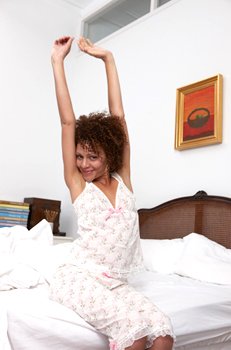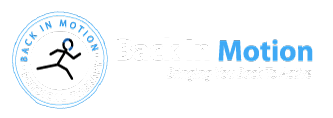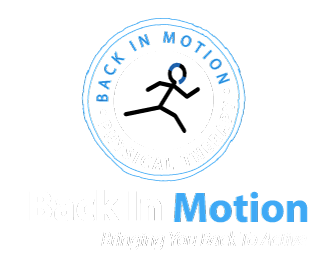Are you having difficulty getting a good night’s sleep each night? Are you tired of being tired all the time? You may want to ask your self some of the following questions.
Do I Have Bad (Sleep) Habits?

A variety of factors can make it difficult to unwind & relax to fall asleep. These factors can affect your overall quality of sleep as well as how long you sleep. An individual typically spends 1/3rd of their life sleeping. If you or your partner have concerns about the quality of your sleep, you very well may benefit from reading “10 Tips For A Good Night’s Sleep”.
Perform an assessment of your sleep habits and ask yourself the following questions. Do you:
- Go to bed in the evening or at night at different times
- Experience sleep interruptions; tossing and turning
- Experience difficulty staying asleep or falling asleep
- Have a dependency on sleeping pills, alcohol, medicines or sedatives to fall asleep
- Perform loud snoring
- Feel tired &/or fatigued upon waking
- Wake up with a headache
- Get sleepy or have a tendency to doze off at work
Some of the above listed symptoms, are indicative of sleep apnea. Sleep apnea is defined as breathing that is blocked or partly blocked during sleep. Obstructive sleep apnea is a potentially dangerous & is largely undiagnosed. It can strike people of any age including infants and children, however is it seen frequently in the 40+ year old male. Being overweight or obese are contributing factors. Most people do not even realize they have a sleep disorder (unlike an insomniac who stays up all night). According to the American Sleep Apnea Association, it is estimated that over 22 million Americans suffer from Sleep Apnea SleepApnea.org. Sleep Apnea is becoming recognized today as the life shortening disease that it is.
How Much Sleep Do I Really Need?

For those of you who have a sleep disorder, your body is likely making increased levels of stress hormones, which can cause high blood pressure (hypertension), high blood sugar (hyperglycemia), low “good” cholesterol, high triglycerides & belly fat. This can contribute to problems such as heart disease, diabetes, and stroke.
Most adults require 7-9 hours/night. Others may get by with 6-7 hours/night. In some cases, it is possible to sleep too much. Individuals who consistently spend excessive time sleeping may have problems such as depression or chronic fatigue syndrome. Deficits associated with the quantity &/or quality of sleep may not be immediately obvious, but problems will slowly and quietly add up and take their toll on your body. If you are getting adequate sleep you will “want” to get out of bed in the morning and you will wake up feeling alert and refreshed. Conversely, if you are not getting adequate sleep, your daytime energy levels may be low and you may exhibit sleepy, tired or irritable symptoms. When you have a chronic or severe painful condition which you go to bed with at night and wake up with in the morning, it’s no fun. It can be depressing. It can take away your willingness or drive to get out of bed. The skilled team of Physical Therapists and Occupational Therapists at Back In Motion Sarasota Physical Therapy want to help. We want you to wake up with a renewed outlook on each and every day. You will find that with the right physical therapy, you can get a good night’s sleep and get “Back In Motion”.
10 Tips For A Good Night’s Sleep

- Try gentle breathing and stretching techniques. Let your physical therapist teach you gentle, active isolated stretching and controlled breathing which will aid in relaxation & reduction of muscle tightness. Tight musculature and stress can trigger a viscous cycle of pain leading to increased spasm leading to increased pain. The active isolated stretching will break this cycle & put you in a better state of mind prior to resting a night. Yoga is also a beneficial practice before bed to encourage a good night’s sleep.
- Extra body weight can cause sleep disorders. Check out Ideal Diet Sarasota for more information on our Physical Therapist supervised food based weight loss program. We are an authorized center for Ideal Protein weight loss method and products. We have a full time Nutritionist on site to coach you on what to eat, what not to eat and how to melt the fat away all while preserving your lean mass and calorie burning metabolism!!!
- Eliminate caffeine, soda, sugar and other stimulates before bed time. This is something that aided in my peaceful nighttime sleep. As soon as I eliminated any type of caffeine after 12 noon, I would fall asleep easily and stay asleep throughout the night.
- Eliminate big meals right before bed time. Try eating a combo of healthy carbohydrates and protein. You may want to consider a combination of foods such as wheat pasta, fresh vegetables, a mixture of yogurt with crispy cereal sprinkled on top (non-sugary), milk and graham crackers. For best results, consult our nutritionist at Back In Motion, Sarasota Physical Therapy for advice about which foods can make you sleep better as well as (& just as importantly) foods which may prevent you from getting a good night’s sleep.
- Keep Cool. Cooling the room that you will be sleeping in prior to going to bed is a good idea because your body needs to cool to a certain temperature in order to get to a deep sleep. Try taking your evening bath or shower earlier in the evening. You also may want to try not making the water as hot while taking an evening shower or bath. The optimal room temperature for many is between 65 and 68 degrees Fahrenheit to achieve restful peaceful sleep.
- Use a white noise machine. If you have a smart phone, there are several free apps to choose from. Find a noise that is soothing to you. To some it may be the sound of ocean waves. To others, the sound of raindrops. Some people find soothing, ambient music helpful. Find the noise that works for you.
- Make your bedroom dark. Make sure to have adequate curtains to block out various forms of light such as sunlight, moonlight, headlights, streetlights, etc. Install a dimmer switch and use it to decrease the brightness of the lights prior to going to bed. This will automatically trigger your body to unwind. The white light from a tablet, smartphone or computer signals your body that it is in “day” mode. Avoid using these devices prior to bed time. If you sleep with your phone near your bed, avoid checking it for messages and turn off the ringer and message indicators. Resist the temptation to utilize the alarm clock function on your cellphone. Get a regular alarm clock with a soothing, relaxing wake up sound.
- Clear your mind. Try to relax with meditation techniques. One article published in Frontiers in Neurology by a member of the National Institute of Mental Health and Neurosciences, Bangalore, India sited several large scale studies showing the many different effects meditation practices can have on sleep improvement. Do not think about what you have to do tomorrow. Leave all thoughts of work outside the bedroom.
- Get comfortable. Use pillows as positioning devices. If you sleep on your side, sleep with half of a body pillow between the knees and hug the other half with your arms. If you sleep on your back, sleep with a pillow under your knees to keep the stress off from your low back. Try to avoid sleeping on your stomach, especially if you have arthritis of the spine, lumbar spinal stenosis, spondylosis or low back pain.
- Consider your clothing. If you are wearing night time clothing that is tight, scratchy or otherwise uncomfortable, consider changing into something more “pro-sleep”. Try loose cotton pajamas or a long nightshirt. Some get a good night’s sleep wearing very minimal clothing. Sometimes a sleeping mask will help darken the room for you and put some gentle pressure on the eyelids. Often times these masks come infused with soothing aroma therapy scents like lavender and gardenia.
These tips will help you sleep better and wake up feeling rejuvinated and refreshed.

If you depend on sedatives and alcohol to fall asleep, consider consultation with your physician. If you are having difficulty falling and staying asleep for a good night’s sleep, call Back In Motion, Sarasota Physical Therapy today at (941) 925-2700. We will assist you with an active isolated stretching (AIS) program, teach you deep breathing exercises & weight loss programs to make your health better. Making your health better will improve the quality of your sleep. We have many other state of the art revolutionary treatment options to manage medical conditions which may be contributing to abnormal sleep patterns. If you are having difficulty with sleeping, you need to do something about it. Do not delay, the longer you wait, the more severe your problem may become.
Call us Now!
-Edited by Becca Chamberlain, LMT, RYT


0 comments